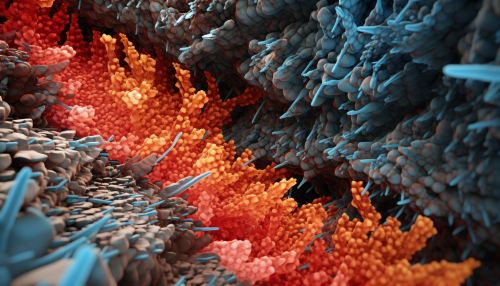Heat shock protein
Introduction
Heat shock proteins (HSPs) are a group of proteins that are produced by cells in response to exposure to stressful conditions. They were first identified in relation to heat shock, but are now known to be produced during other types of stress including exposure to cold, UV light, and during wound healing or tissue remodeling. Many members of this group perform chaperone function by stabilizing new proteins to ensure correct folding or by helping to refold proteins that were damaged by the cell stress read more.
Classification
Heat shock proteins are named according to their molecular weight. For example, Hsp60, Hsp70 and Hsp90 (the most widely-studied HSPs) refer to families of heat shock proteins on the order of 60, 70, and 90 kilodaltons in size, respectively. The smaller heat shock proteins like Hsp10, Hsp27, and alpha-crystallins are crucial in protein–protein interactions involving, among other things, the assembly and translocation of protein complexes across cell membranes read more.


Function
Heat shock proteins have powerful protective functions that help the body's cells resist damage from a number of environmental and physiological stressors. They are part of the cell's machinery for protein folding, and help to protect cells from stress-induced apoptosis. They also stabilize the cytoskeleton, which is necessary for cell shape and motility. In addition to these intracellular functions, extracellular heat shock proteins have been implicated in binding antigens and presenting them to the immune system read more.
Role in Disease
Heat shock proteins play an important role in disease states as they assist in protein folding and stabilization. They have been implicated in a number of diseases including cancer, neurodegenerative diseases, and autoimmune diseases. In cancer, heat shock proteins are overexpressed and have been linked to the proliferation, differentiation, invasion, and metastasis of cancer cells. In neurodegenerative diseases such as Alzheimer's, Parkinson's, and Huntington's disease, heat shock proteins can help prevent protein misfolding and aggregation, which are hallmarks of these diseases read more.
Therapeutic Potential
Due to their role in protein folding and stabilization, heat shock proteins have become targets for therapeutic intervention in a number of diseases. In cancer, inhibitors of heat shock proteins have been developed and are currently being tested in clinical trials. In neurodegenerative diseases, efforts are being made to develop drugs that can increase the expression of heat shock proteins and thereby enhance their protective effects read more.
